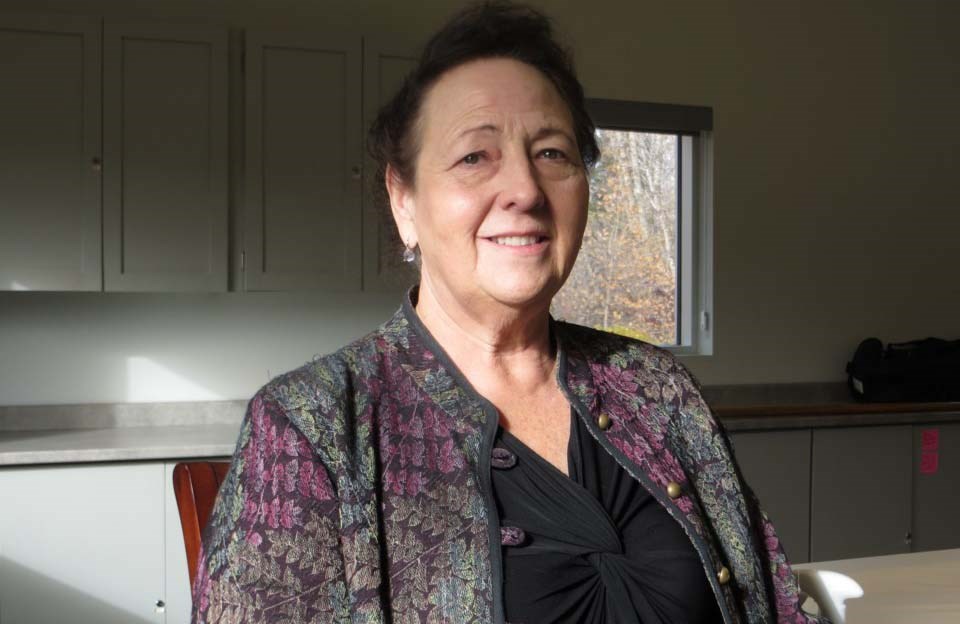Does age define you?
The St. Albert Seniors Association hopes you said "no," but if you said "yes," Linda Ensley, Lise Ruthardt, Sue Trenchard, and a team of volunteers want to change your mind.
With the help of a $23,500 grant from the federal government, the Seniors Association is gearing up for a busy summer of events and mini-projects aimed at fighting ageism in the community.
“Ageism is a very big issue and it applies to all ages,” said Ruthardt, a Sturgeon County resident and driving force behind the project. “There's commonality amongst all of us and discrimination (through) ageism affects all of us.”
Although ageism is generally defined as discriminatory acts based on age, it also encompasses stereotypical thoughts and prejudicial feelings towards certain age groups.
Asked for an example, Ensley, the executive director of the Seniors Association, told the Gazette about how last year two local women in their 60s with a passion to explore set out to buy motorcycles at a local dealership. Once in the door, Ensley said, the women spent nearly an hour browsing waiting for a sales associate's assistance, which never arrived.
Ensley said the women tried another store in Edmonton later that day, and were the proud owners of two new Harley Davidsons before sunset.
“To be treated like that makes you feel invisible,” Ensley said. “It was so blatant, and they were so mad.”
Ensley said before the project team decided to apply for the grant last fall, they held focus groups with seniors association regulars and found experiencing ageism was much more common for women than men.
“I'd say 99 per cent of women said, ‘Yeah, I experienced age discrimination,’” Ensley said.
“Most of the men say, ‘No, nobody's ever discriminated against me because of my age,’” she said, noting many of the men sharing that response were white and wealthy.
“I'm like, ‘because you've always had that power,’ and I think people pick up on that, whereas women as we age ... so often power for women is not associated with our brains or our financial status, it's whether or not we were beautiful.”
“It's really a form of sex discrimination too,” she said.
Although the project's main focus is to reduce ageism felt by local seniors, Ensley and Ruthardt said they know youth experience similar issues.
“We don't want our younger counterparts to be invisible,” Ensley said. “They have new ideas, they have their own kind of wisdom that has been gained through their own experiences, and we can't just throw that out the door and go, ‘It's only because we've lived a long time that we're so wise.’”
The project team hopes local youth may want to volunteer for the project over the course of the summer. Ensley said approximately 20 volunteers are needed for the events, and invited people to email if they are interested in getting involved.
In terms of the project's deliverables, Ruthardt said anything is possible. The group has their eyes on producing a short video, a podcast, and possibly a skit-comedy event.
“It could be a lot of fun,” Ruthardt said. “We could have fun this summer with us the olders and the youngers.”
“I fear that if everybody thinks ageism is just about old people, then automatically they may not have interest. The main key is we all have to feel connected.”
Ensley said the events will aim to keep people active and involved in the community, no matter how old they are.
“The internalized ageism is really hard to watch,” she said. “We talk to our seniors and they'll stop coming to things; they'll be really active from 50 to 70 and then they stop coming in.”
“You ask, 'Why aren't you coming?' (and people say), ‘I'm not comfortable coming anymore ... I'm so wrinkled now and I look in the mirror and everything just feels awful and I feel embarrassed coming out of my home even to be with other seniors,’” Ensley said. “Because of ageism sometimes you can almost watch it happen when people decide to get old.
"We want to change all that.”




